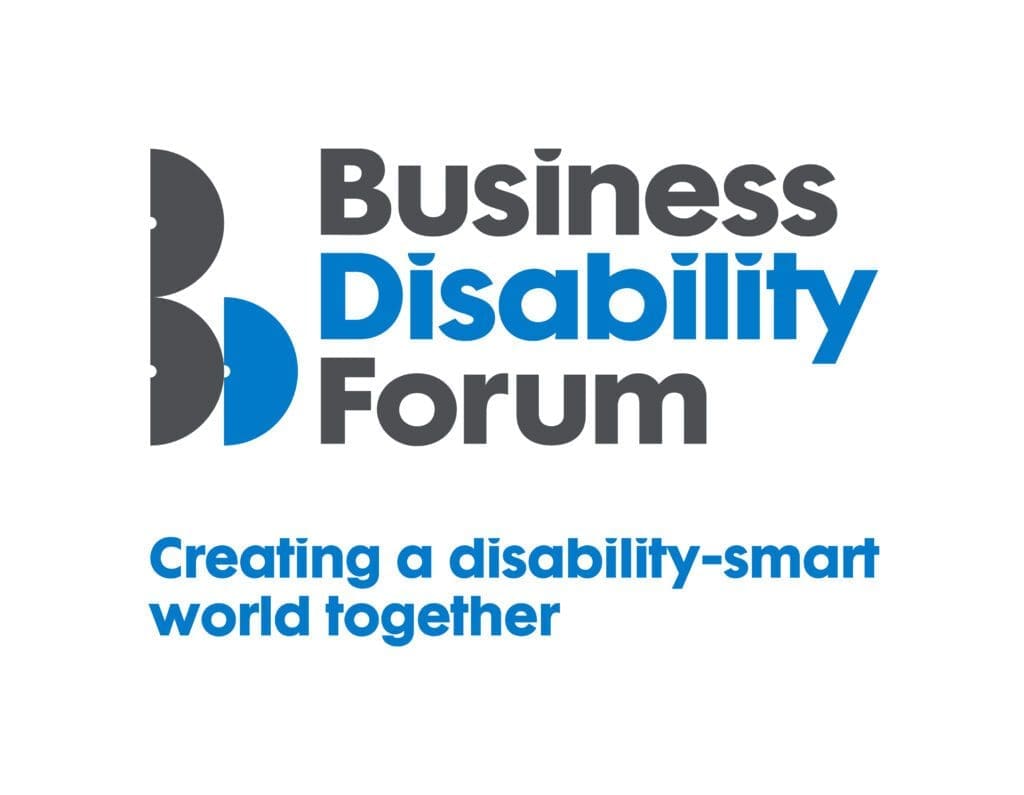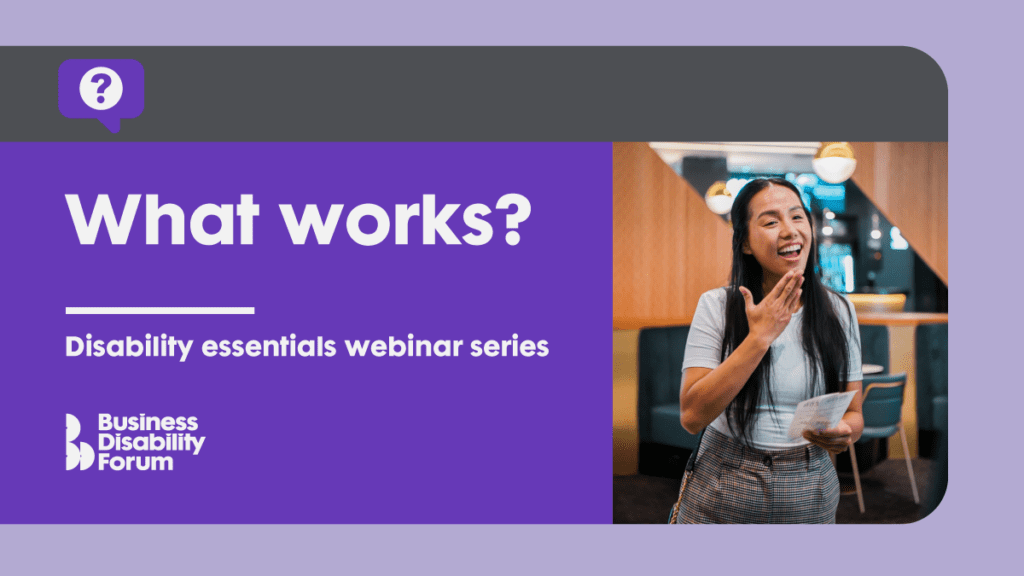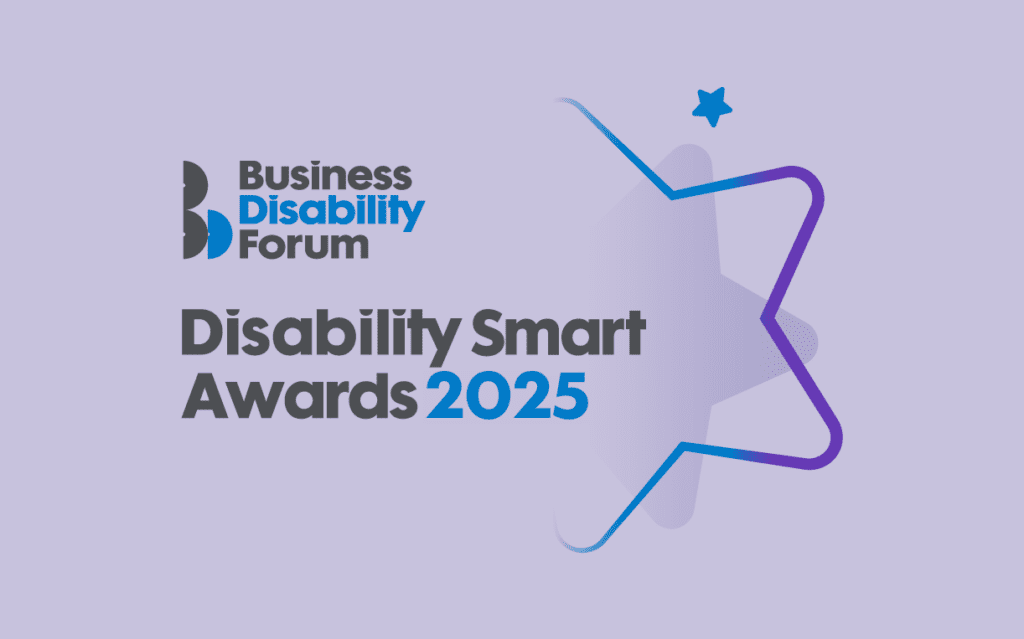About us
We are Business Disability Forum - the leading business membership organisation in disability inclusion. We are trusted partners, working with business, Government and disabled people to improve the life experiences of disabled employees and consumers, by removing barriers to inclusion.

About Business Disability Forum
- We work with over 600 Members employing over 20% of the UK workforce, and a further 16 million people worldwide.
- We advise, support and encourage businesses (many of them global) to become more disability-smart.
- We influence policymakers by representing the voice of employers and disabled employees.
- We provide evidence-based thought leadership on how business affects the lives of disabled people.
- We help effect changes in business practices, products, services and policies that positively impact the life experiences of disabled people, and also benefit business.
Download transcript for About Business Disability Forum video (Word, 1.17MB)
What do we offer?
- A community of businesses of all sizes, (many of them global), thought leaders, and disabled people who all want to improve the life experiences of disabled people by removing barriers to inclusion.
- Expert, tailored, in-depth, specialist advice from our Advice Service.
- Opportunities through events, webinars, research, Networks and Taskforces to share, learn from each other and collaborate.
- Practical evidence-based, disability inclusion solutions for business through our experienced, supportive, specialist Disability Business Partners who can work with every business area and at every level, wherever you are on your disability-smart journey.
- Thought leadership and the latest business and policy insights on disability inclusion.
- Practical resources in our extensive Knowledge Hub on a wide range of topics. Get a free sample of what’s on offer within our Knowledge Hub with our free Disability Essentials range.
- Opportunities to participate in research, providing valuable insight and evidence to shape disability policy.
We also offer learning and development, consultancy services and a range of publications for purchase including best practice briefings, people manager guides and global guides.
Join us
To find out more about membership, email David Goodchild, Director of Membership or call +44(0)79-1712-1160
If you require this content in a different format, contact enquiries@businessdisabilityforum.org.uk.


